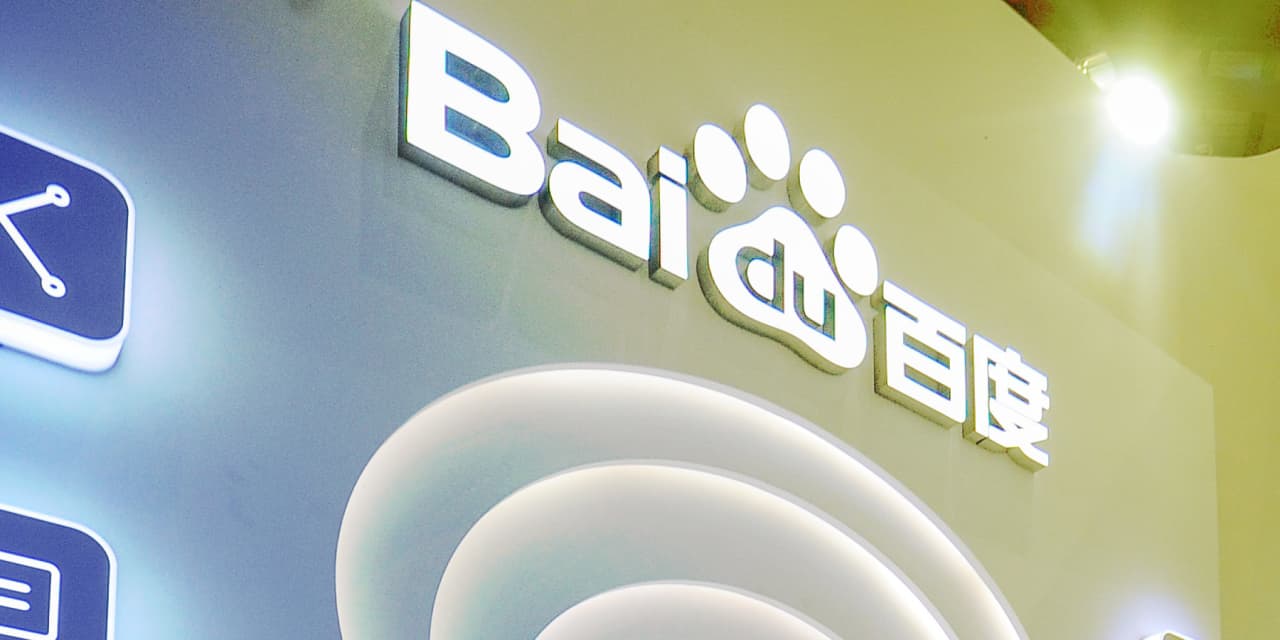Baidu is pushing its claim to be China’s artificial-intelligence champion. The company thinks the latest version of its AI technology is a match for that developed by ChatGPT-maker OpenAI.
It’s a serious claim from
Baidu
(ticker: BIDU), both in terms of its competition with
Alibaba
(BABA) and
Tencent Holdings
(TCEHY) to be the leading Chinese AI company, and how the AI race between the U.S. and China is shaping up.
Baidu CEO Robin Li said on Tuesday that the company’s newly released ERNIE 4.0 chatbot “stands on par with [OpenAI’s] GPT-4 in terms of overall performance”, according to a company-provided translation of his speech at a presentation event. The chatbot is currently available to invited users and companies can apply to access it.
Baidu claiming AI leadership in China isn’t necessarily a big surprise. The previous version of its ERNIE AI model was ranked as the best among its domestic peers based on its algorithms, industry coverage, development tools and ecosystem, according to market-intelligence firm IDC.
However, if it has caught up with
Microsoft
(MSFT)-backed OpenAI, then Baidu has overcome obstacles including stricter government controls on development of AI technology and U.S. efforts to limit exports of advanced semiconductors used for training AI models.
It would also suggest that Baidu is further ahead than major U.S. companies such as
Meta Platforms
(META). The Wall Street Journal reported last month that Facebook-owner Meta was planning the release of an AI model as powerful as GPT-4 next year.
Barron’s hasn’t had a chance to test ERNIE and comparing AI models is tricky in any case. However, some analysts are skeptical over how big a leap the latest release represents and whether a Chinese model can truly have caught up with the latest U.S. AI technology.
“I suspect that ERNIE 4.0 remains quite some distance behind the best that OpenAI and Google can come up with,” wrote independent analyst Richard Windsor, who publishes the Radio Free Mobile note.
Windsor said that governmental restrictions and the Chinese data set that ERNIE will have been trained on means its knowledge will be relatively limited and reduce its functionality outside of China. However, that could still let it outcompete models from Alibaba and Tencent.
American depositary receipts of Baidu were down 2.6% in early trading on Tuesday. Alibaba ADRs were down 1.8%. Tencent shares closed up 0.4% in Hong Kong.
Baidu’s domestic rivals aren’t sitting still. Alibaba and Tencent both participated in a $300 million financing for Chinese generative AI start-up Baichuan, Bloomberg reported Tuesday, a company that has already released several open-source large language models and is working on proprietary versions.
Write to Adam Clark at [email protected]
Read the full article here












